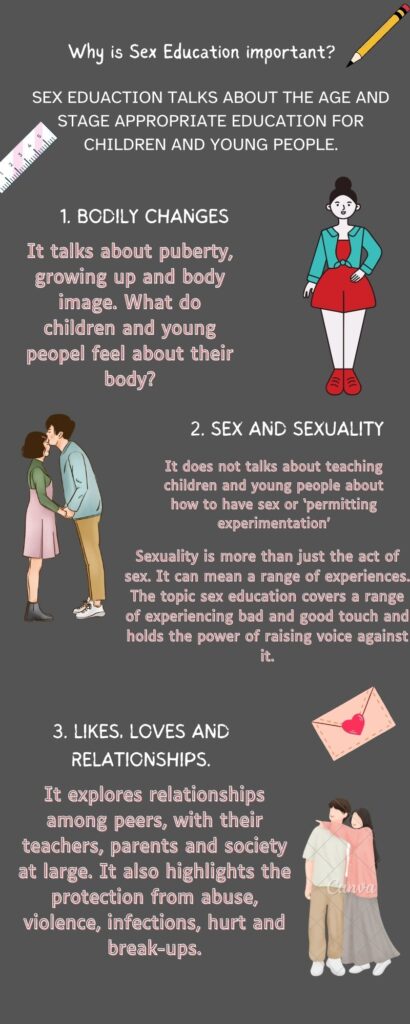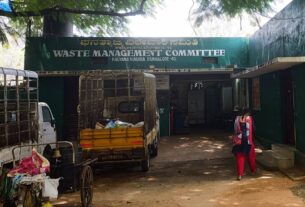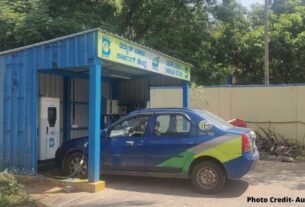Schools and colleges in Sindhnur and Bangalore are not providing sex education to the students, resulting in students left uneducated about it.
The word ‘sex’ if said while being surrounded by people, then the judgy side-eye looks are all set to target. Rewrite. It is still a taboo in 2024 to talk openly about the bodily changes a teenager goes through or to ask questions freely about ‘What is sex?’ As much as the government is trying its best, introducing schemes to educate students about sex; schools in Sindhnur and Bangalore are yet to put these schemes into practice.
Samreen, a second year Pre-University (PU) college student in Sindhnur taluk said, “I was in class six when I was taught about the menstruation cycle. Apart from that no other sexual education was provided , both in school and college.”
Resham, a student from class nine said, “Our school teachers are too conservative to even explain us about the few chapters in the science textbooks that are related to the human body; except the chapters about the human reproductive system rest everything has been taught to us.”
As per the Rashtriya Kishor Swasthya Karyakram (RKSK), it is necessary to allot health ambassadors in the various parts of taluk who are available in the government hospitals, and are responsible for improving knowledge, attitudes and behavior in relation to sexual and reproductive health, to reduce teenage pregnancies and improve the overall health of a teenager. This scheme was introduced by the government to spread awareness about sex education by educating the peers in their early teens.
The roles of the RKSK are to educate adolescents about healthy practices while growing-up, mental health development, gender-based violence, sexual health, knowing the human reproductive system and menstrual hygiene.
Ramanjan Kumar, Adolescent Friendly Counsellor at the Taluk General Hospital said, “My team and I are willing to visit schools and colleges in the taluk to educate students about sex education; but in previous times whenever we have visited the schools we have got rejection from the principal to conduct lectures about sex education.”
Dr Nagaraj Katwa, a gynaecologist at the Taluk General Hospital said that he has come across cases where if a teenager visits to talk to him about her sexual health, then the mother of the teen are not willing to allow their child to talk about their bodily changes to the doctor.He said that it is the lack of education among the people of taluk that makes them hesitant to talk about the necessity of sexual health and how it is important to be known.
The concern in the rural parts of Karnataka arises when the literacy rate of that particular area is very low; the problem of females or even males not consulting the doctors for their sexual matters has been prominent in this taluk, he added.
As per the data from the National AIDS Control Organization (NACO), Karnataka ranks seventh in the country for HIV-AIDSamongst adults with 0.47 percent prevalence. .
Dr. Bhavya, a gynaecologist at a hospital in Bangalore said, “If children are well-educated about sexual health, then they will be able to stand for themselves when they experience something bad . Providing sex education in schools would be a safe space for children to talk about the things they feel odd about.”
Dheeraj, a first year PU student said, “I know about it through my phone as I have been on social media from last so many years and it has been my educator since then.”
Faizaan, a teacher at sSecondarySchool in Sindhnur taluk said, “I teach Science and Geography to students from class eight to class 10, and personally it is very difficult for me to open up about the ‘sex education’ to students through the chapters that are listed in the textbooks, however I have never skipped any chapter to teach them so far.”
Even if it is necessary to teach the students about their body changes and sexual health; it would be more impactful if the lessons are taught by a female teacher. Unfortunately, we don’t have any female teacher in our school, so whatever we have taught to students is basic education which is mentioned in the textbook, he added.
Basavaraj M, principal of the same school said that from last few years there were no recruitment for female teachers as there were no candidates available and also ‘Sex education’ is now-a-days not that necessary to be taught, as internet and social media is a tool which has been accessible to everyone for every problem.
Naseem, a professor at the Fathima Minority Girl College said, “It is challenging for usto openly talk about sex education to the girls as they might take it in a wrong direction as a growing adult; however, menstrual education and bad and good touch are the two important concepts which we have taught our students.”
Dr. Bhavya said that it has been mandated by the government to take up the educational programmes to educate children and it should be made compulsory by the education department as well to regulate these programmes in all schools in the state.

As per the Ministry of Human Resource Development, an Adolescence Education Programme was introduced to spread awareness amongstudents to avoid sexual harassment and sexual abuse and overall growth of a child. The report also states that it is necessary for all the government schools to educate students about the problems related to Adolescent Reproductive and Sexual Health (ARSH) and menstrual education coping with emotions and various diseases like Sexually Transmitted Diseases (STD), Reproductive Tract Infections.
The lack of sex education in school and colleges is not just limited to rural schools but it also continues to be a problem in the schools in Bangalore.
Raksha and Kishore, students of class 10 of a school in Bangalore said that apart from the menstrual education given in class five and six, nothing else was taught to them about the human body changes and sex.Both of them said that a series on Netflix have helped them to understand better about sex education.
“The Human Reproductive System chapter was skipped after giving a few notes on it in our school and was told by our teacher that the chapter is not much important to be focused on,” said the two students.
As per the Section 5A of the Karnataka Education Act, 1983 all the schools and educational institutions should take measures to ensure safety and security of students which includes protection of an individual from sexual offences.
Dr. Bhavya said, “Schools should play an equally important role to create awareness amongst the children as now-a-days we have seen so many cases of sexual harassment and child abuse increasing.” The lack of sex education can result in the cases of minor sexual assault, sexual harassment in schools or colleges, teenage pregnancies. With these issues, an adolescent would never be able to raise voice against the problems he/she is going through. An open space in school to talk about their concerns can make the students free to talk about the things they are hesitant to talk about to their parents, Dr Bhavya added.
A research from International Journal of Home Science stated the importance of the growing need for the government schools and private schools in all over the world to take initiative and implement to educate children about their bodily changes that occur in them after a certain period of time.




